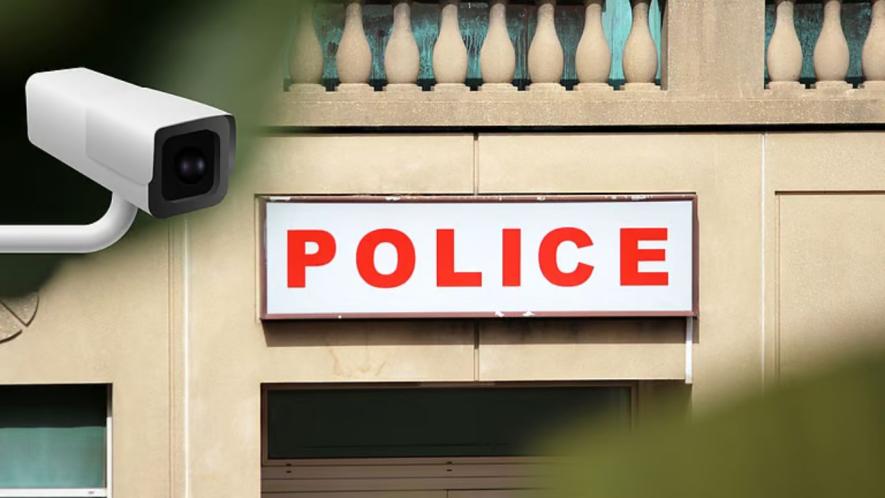What RTI Data Reveals About Custodial Torture in Tamil Nadu’s Police Stations

Often ranked among the best in the country, by independent reports and the government alike, the Tamil Nadu (‘TN’) police is commonly lauded as a model force. Specifically, the India Justice Report 2025 has ranked the TN police at the top among eighteen large and mid-sized states on various factors, including diversity, conviction rates, and modernisation. Prisons in Tamil Nadu are also ranked best for their jail management. The TN Police are often praised for their large conviction rates of rowdies, reduced murder rates including their self-portrayal as the “Indian Scotland Yard”.
However, a deeper look, particularly through the lens of their custodial behaviours and approach towards free assembly tell us a different tale. The Sathankulam custodial death and Thoothukdui massacre are just the tip of the iceberg in terms of incidents and statistics which tell a parallel tale. The contrast between these celebrated statistics and grassroot developments present a need to rethink if these crafted narratives are just to mask the deeper systemic flaws.
Unveiling custodial behaviour
Since 2022, 24 custodial deaths have taken place as a direct result of police torture. Particularly, the custodial death of a 17-year-old in 2023 at the Chengalpattu juvenile home illustrates the systematic brutality entrenched within the TN police. Instead of reforming a minor arrested for a petty offence, the railway police and juvenile staff subjected him to unimaginable physical torture, resulting in 96 injury marks, including severe contusions and abrasions as recorded in his post-mortem report.
Since 2022, 24 custodial deaths have taken place as a direct result of police torture.
The police brazenly lied that the cause of death was food poisoning. Later, the government constituted a one-man committee consisting of Justice K. Chandru as a knee-jerk reaction to study juvenile homes across the state. The final recommendations of this report are still not public.
The police also, often, carefully connive with the medical department and violate the judicial mandate to be followed regarding postmortem certificates, video recording of autopsies, and issuing them to the families in custodial deaths.
Shocking statistics on slippery toilets – A lame excuse on custodial torture:
In light of this comes the RTI data unveiling pre-remand injuries of accused persons entering the Puzhal Prison, Chennai over a period of ten months in 2024. Shockingly, over 300 inmates entered the prison with broken limbs. Out of the 304 accused persons, 163 sustained forearm fractures, of whom 52 sustained injuries on the left forearm and 112 on the right forearm. 61 sustained hand fractures and 77 entered the prison with leg fractures.
Fractures to essential parts of the human body that are instrumental for performing ‘Activities for Daily Living’ (DLA) reflect the torturous attitude of the TN police. Surprisingly, the pre-remand injuries are lower to the accused with heinous crimes (177) and murder cases (144) than for those charged with petty offences. More than 75 percent of the injuries were sustained by petty offenders (237 out of 304). This data can only help us arrive at a conclusion that fractures are the warm welcoming modus adopted by the TN police.
Interestingly, the police provided a lame and unscrupulous justification that these injuries were due to the slippery toilets in police stations. When one of the parents of these accused persons approached the Madras High Court, the division bench rebuked the police and questioned why no police officer was injured in these slippery toilets.
Judicial mandate on CCTV and the institutional incompliance
In order to curb this brutal act of police through monitoring, the Supreme Court in 2020 ordered state governments to install CCTV cameras in all the police stations including other investigating agencies. The Court also directed the DGP of all states to direct the SHO of every station to ensure its proper functioning, storage, and maintenance.
It has been five years since the judgement was passed. Yet many stations still do not have fully functional CCTV cameras. At best, the police stations refuse to provide CCTV footages citing lame reasons. The RTI statistics with regard to installation of CCTV cameras in all sub-divisional police stations in 13 southern districts of Tamil Nadu proves that none of them have it except for one district.
Surprisingly, on July 1, 2024, the DGP of Tamil Nadu submitted a contradictory affidavit to the Madras High Court stating that 99 percent of the police stations across Tamil Nadu have fully functional CCTV cameras with mandated storage capacity. This abrupt misinformation by the DGP implies the institutional failure in complying with the directions of the court
The sharp rise in the encounter killings in the last four years - 21 deaths in 18 incidents since 2021 - exposes the alarming failure of the Tamil Nadu police on upholding constitutional policing.
Rising extrajudicial killings
The sharp rise in the encounter killings in the last four years - 21 deaths in 18 incidents since 2021 - exposes the alarming failure of the Tamil Nadu police on upholding constitutional policing.
A total of 106 encounter killings have taken place in the state since 1998. Their blatant disregard for constitutional rights was condemned by the Madras High Court in a case of encounter killing. The High Court noted that “it tends to point out the lack of faith of the law enforcing agency in the Rule of Law...it reminisces the colonial past of the agency that the British constituted under the Indian Police Act, 1861 and is an affront on democracy”.
This year, the state’s wilful silence about three encounters in just seven days during an active assembly session shows a disturbing normalization of encounters by police.
What does the Government do in this regard?
The Government only frequently transfers the police officials who are involved in the brutal acts. This is in violation of the Prakash Singh (2019) ruling which mandates a minimum tenure for such officers. IPS officer S. Velladurai, who is often praised as an encounter specialist, was glorified by the government. Another disturbing story is of IPS officer Balweer Singh, who has recently been put under temporary suspension for his inhumane act of forcefully stuffing pebbles in the mouths and slapping and crushing the testicles of several accused persons. Such knee-jerk reactions to serious violations of human rights by police remind us of the government’s disregard for the rule of law.
Time and again, there have been several appeals to both the central and state governments calling for police reform.
Harassment against human rights defenders In the last few years, Tamil Nadu has been witnessing a rising trend of false allegations and arbitrary detentions of many human rights defenders, the worst of which has led to the death of a few due to police inaction. Cases filed against the protestors of Hydro Carbon project and the SIPCOT extension in Melma, both of which were recently quashed by the Madras High Court stand as testament to the police's approach towards freedom of assembly.
Another infamous memory of stifling dissent by the TN police is the brutal killing of 13 innocent people in Tuticorin. The police are mostly indifferent and reluctant to protect the lives of human rights defenders . On September 10, 2022 a Karur bases environmental activist, Jeganathan, was brutally killed by the quarry mafia against whom he fought to protect the environment.
In January 2025, another environmental activist from Tamil Nadu named Jagaber Ali was similarly run down by a lorry of the quarry owners against whom he got an order from the High Court. What is interesting in both of these cases is that both of them sought protection from police before their death. Police inaction ultimately led to their killing. The NHRC took suo moto cognizance of another human rights defender from TN in March 2025, clearly citing police inaction.
Failure to protect victims and witnesses
The story of Gnanasekaran, a Madurai based environmental activist, remains a chilling reminder of the systemicity of police hesitation to protect victims and witnesses. Gnanasekaran was brutally assaulted by illegal quarry owners in December 2024, after which he sought protection under the Witness Protection Scheme, 2018, in January, 2025.
Unfortunately, the police had till now failed to provide any protection to him despite an order passed last week by the Principal District Judge, Madurai. This also happened against a Supreme Court ruling from 2018 which categorically pointed out the threats and attacks to victims and witnesses in India and formalised the Witness Protection Scheme, 2018. The same judgement also mandated setting up of Vulnerable Witness Deposition Centres (‘VWDC’). This was reiterated in a subsequent ruling in 2022 which also categorically held in 2024 that “the State of Tamil Nadu has not taken any action at all.”
This was followed by a notification by the Madras High Court. This notification has still not been implemented - over 90 percent of districts in TN do not have VWDCs. In a state where the police is very less inclined to protect the victims and witnesses, the absence of VWDCs make the criminal justice system very weak, opposed to the dominant narrative that unequivocally praises the TN police.
Is there any light?
Time and again, there have been several appeals to both the central and state governments calling for police reform. In fact, the current state government constituted the fifth police commission a few months after coming to power in 2021.
The commission this year recommended several reforms including pay hike, initiatives for fostering public-police relationship, and mental health training, among others. In a country with concrete police impunity, no torture law and very minimal police accountability, reccommendations such as this should be sincerely implemented. We strongly hope that this state government known for its social justice model, and its steadfast commitment to state autonomy and federalism begin translating these reforms into action rather than dwelling on ranks and reports.
Courtesy: The Leaflet
Get the latest reports & analysis with people's perspective on Protests, movements & deep analytical videos, discussions of the current affairs in your Telegram app. Subscribe to NewsClick's Telegram channel & get Real-Time updates on stories, as they get published on our website.
























